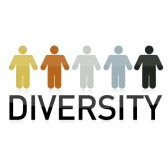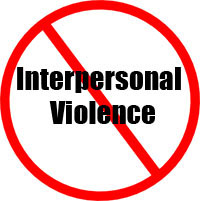Menu
Array
- 2023, August 4, DRC, Dispute Resolution Center Conference, Video Download Only
- 2022, August 11-13, DRC, Dispute Resolution Center Conference Recordings
- 2021, August 11-13, DRC, Dispute Resolution Center Conference - Video Download Only
- 2020, August 13-15, DRC, Dispute Resolution Center Conference Recordings - Video Download Only
- 2019, August 15-17, DRC, Dispute Resolution Center Conference Recordings
- 2018, August 9-11, DRC, Dispute Resolution Center Conference Recordings
- 2017, August 10-12, DRC, Dispute Resolution Center Conference Recordings
- 2016, August 11-13, DRC Dispute Resolution Center Conference Recordings
- 2015, July 30-August 1, DRC, Dispute Resolution Center Conference Recordings
- 2014, August 14-16, DRC, Dispute Resolution Center Conference Recordings
- 2013, August 9-10, DRC, Dispute Resolution Center Conference Recordings
- 2012, August 23-25, DRC, Dispute Resolution Center Conference Recordings
- 2011, August 25-27, DRC, Dispute Resolution Center Conference Recordings
- Catch All Category
Product Categories
Filter by price
001 – Bundle One-2022 (16.5 Total CME Credits = 4.5 Ethics, 3 Interpersonal Violence, 1.5 Cultural Diversity & 7.5 General)
$165.00 – $198.00This bundle will satisfy county and circuit mediators that need the full 16 hours and includes the following presentations:
A1 – (E) Mediator Campfire Stories: Tales of Conflicts of Interest - Robin Caral Shaw (1.5 CME Ethics) A4 – (E) Circuit Court Mediation-Effective Mediation Techniques and Ethical Pitfalls (1.5 CME Credits Ethics) A5 – (G) What to Expect When You’re Expecting (to mediate) - Alexandria Romano and Rodney Romano (1.5 CME Credits General) A6 – (G) Empathy Based Mediation - Tee Persad (1.5 CME Credits General) A7 – (G) Taming of the Shrewd: Techniques for Mediating with Adversarial Attorneys – Patricia Antonucci (1.5 CME Credits General) A11 – (IPV) Protect Your Mediation Practice from Hackers - Christopher Hopkins (1.5 CME Credits Interpersonal Violence) B1 – (E) Right the Lens, Write the Agreement: Reconciling the Ethics Behind Party Decision-Making - Rick Miller (1.5 CME Credits Ethics) B7 – (G) Eldercaring Coordination: Mediators, Meet the New Kid in Town! – Linda Fieldstone & Fran Tetunic (1.5 CME Credits General) B8 – (G) Timeless Truths Getting to Yes, Negotiating Agreement Without Giving In - Anne Langley & John McCorvey (1.5 CME Credits General) B10 – (CD) Are We There Yet? The Path Forward on Bias Elimination and Diversity in ADR - Ana Cristina Maldonado & Kelly Overstreet Johnson (1.5 CME Credits Cultural Diversity) B11 – (IPV) Encountering Human Trafficking - MaryAnn Aiyer (1.5 CME Credits Interpersonal Violence) "Click Here for Visual Materials"002 – Bundle Two-2022 (16.5 Total CME Credits = 4.5 Ethics, 4.5 Interpersonal Violence, 1.5 Cultural Diversity & 6 General)
$165.00 – $198.00This bundle will satisfy family and dependency mediators that need the full 16 hours and includes the following presentations:
A1 – (E) Mediator Campfire Stories: Tales of Conflicts of Interest - Robin Caral Shaw (1.5 CME Ethics) A4 – (E) Circuit Court Mediation-Effective Mediation Techniques and Ethical Pitfalls (1.5 CME Credits Ethics) A5 – (G) What to Expect When You’re Expecting (to mediate) - Alexandria Romano and Rodney Romano (1.5 CME Credits General) A6 – (G) Empathy Based Mediation - Tee Persad (1.5 CME Credits General) A7 – (G) Taming of the Shrewd: Techniques for Mediating with Adversarial Attorneys – Patricia Antonucci (1.5 CME Credits General) A10 – (IPV) Trauma-informed Mediation Practice - Aleksandra Jagiella-Litts (1.5 CME Credits Interpersonal Violence) A11 – (IPV) Protect Your Mediation Practice from Hackers - Christopher Hopkins (1.5 CME Credits Interpersonal Violence) B1 – (E) Right the Lens, Write the Agreement: Reconciling the Ethics Behind Party Decision-Making - Rick Miller (1.5 CME Credits Ethics) B8 – (G) Timeless Truths Getting to Yes, Negotiating Agreement Without Giving In - Anne Langley & John McCorvey (1.5 CME Credits General) B10 – (CD) Are We There Yet? The Path Forward on Bias Elimination and Diversity in ADR - Ana Cristina Maldonado & Kelly Overstreet Johnson (1.5 CME Credits Cultural Diversity) B11 – (IPV) Encountering Human Trafficking - MaryAnn Aiyer (1.5 CME Credits Interpersonal Violence) "Click Here for Visual Materials"A01 – Mediator Campfire Stories: Tales of Conflicts of Interest – Robin Caral Shaw (1.5 CME Ethics)
$15.00 – $18.00
Most mediators -- or at least those with some awareness of ethics! -- have had to stop mediating to assess something said or done because of an ethical dilemma it raises. Join us “around the campfire” to share stories, discuss outcomes, and consider conflicts of interest that come into mediation. Situations as sticky as melted marshmallows!
"Click Here for Visual Materials"
A02 – Secure and Ethical Approaches to Resolving Disputes with Emerging Technology – Harold Coleman Jr., Alexia Georgakapoulos and Rebecca Storrow (1.5 CME Ethics)
$15.00 – $18.00
This highly interactive panel discussion by practicing dispute resolution professionals and educators will begin with an in depth review of how emerging technology tools help us in resolving disputes. A primary concern includes the practical question of when technology should not be used. Keeping in mind the interests of the disputing parties, real case scenarios will be used to demonstrate the importance of security and ethical considerations in selecting process tools, process, and technology. Tools and templates will be provided.
"Click Here for Visual Materials"
A03 – The Ethics of Breaking an Impasse – Brian Gruber and Lloyd Comiter (1.5 CME Ethics)
$15.00 – $18.00
An interactive presentation on the ethical rules involved with breaking an impasse by presenting mediation scenarios and the mediation rules and/or MEAC opinion(s) as guidance for utilizing common tools to break an impasse. The program shall discuss the mediation ethics involved with breaking an impasse during mediation and how a mediator can use those ethical rules as guidance to best select the tools while preserving the mediation participants right to self determination. The program is predicated on audience interaction through a PowerPoint coupled with interactive scenarios and discussions.
"Click Here for Visual Materials 1"
"Click Here for Visual Materials 2"
A04 – Circuit Court Mediation-Effective Mediation Techniques and Ethical Pitfalls – Gary Rosner (1.5 CME Ethics)
$15.00 – $18.00
This workshop will focus on the introduction of the mediation process including but not limited to, introduction of oneself, getting the parties comfortable with the process, techniques in settling (especially with difficult parties/attorneys), ethical pitfalls as to drafting agreement, legal advice questions, being an evaluative mediator and not a numbers runner and dealing with pro se parties.
A05 – What to Expect When You’re Expecting (to mediate) – Alexandria Romano and Rodney Romano (1.5 CME General)
$15.00 – $18.00
This is a three-part presentation covering lecture and discussion of the skillset of high quality and successful mediators, marketing ideas and tips to get a mediation practice off the ground, and finally a review of the common issues in motor vehicle, premises negligence and homeowner’s claims and thoughts/discussion on how to help the parties explore those issues while maintaining the highest ethical standards, protecting self-determination and avoiding any hint of coercion.
"Click Here for Visual Materials 1"
"Click Here for Visual Materials 2"
A06 – Empathy Based Mediation – Tee Persad (1.5 CME General)
$15.00 – $18.00
This workshop introduces mediators to an empathy based framework as a tool to help mediators meet the needs of the mediating parties and the mediating parties’ lawyers, if applicable. The seminar focuses on identifying empathy factors to gain a good understanding of the parties and their underlying interests, and helping them develop reciprocal and joint value propositions during the mediation, which can be instrumental in helping the parties bridge the gap, and, move constructively to reach an agreement.
"Click Here for Visual Materials"
A07 – Taming of the Shrewd: Techniques for Mediating with Adversarial Attorneys – Patricia Antonucci (1.5 CME General)
$15.00 – $18.00
How can mediators encourage self determination, foster meaningful communication, and facilitate exploration of common ground when one or more party is represented by a lawyer who views mediation as (un)necessary evil or a battle to be won? This workshop explores the ways in which attorneys can hinder progress at mediation and offers helpful approaches for transforming lawyers into allies of the mediation process, itself. This presentation will incorporate lecture, visual aids, and audience participation, all geared towards forging some new and useful tools for our mediator toolbelts.
"Click Here for Visual Materials"
A08 – ABC’s of Improving Civil Case Resolutions – Victoria Krouch (1.5 CME General)
$15.00 – $18.00
How do we use alternative dispute resolution in improving the resolution of civil cases? Focusing on the ABC’s of alternative dispute resolution, Alternative approaches, Biases methods, and Consensus skills, this presentation will discuss and explore the most effective emerging techniques for improving the resolution of civil cases and the psychological aspects of justice. Knowing this, conflict resolution professionals can utilize highly effective legal and psychological strategies to help parties in the resolution of civil cases
"Click Here for Visual Materials"
A09 – Effective Mediation of Global Disputes – Cristina Rodriguez (1.5 CME Cultural Diversity)
$15.00 – $18.00
Florida continues to find itself at the center of globalization trends, international supply-chain disputes, and actions involving foreign nationals. Florida mediators will likely find
themselves engaging in a more-global mediation practice, whether it involves a true cross-border dispute or a domestic dispute with foreign parties. This workshop explores the unique cultural, strategic, and ethical considerations involved in effectively mediating these disputes and discusses the tools available to mediators developing a global practice.
"Click Here for Visual Materials"
A10 – Trauma-informed Mediation Practice – Aleksandra Jagiella-Litts (1.5 CME Interpersonal Violence)
$15.00 – $18.00
Why should a mediator be trauma informed? A Trauma Informed Practice emphasizes physical, psychological, and emotional safety for trauma survivors while understanding the impacts of trauma. When a mediator is working with clients, it is crucial to utilize a trauma-sensitive, trauma informed approach. Any client can be a trauma survivor and trauma has a profound effect on how a case proceeds, and it can easily derail the mediation process.
"Click Here for Visual Materials"
A11 – Protect Your Mediation Practice from Hackers – Christopher Hopkins (1.5 CME Interpersonal Violence)
$15.00 – $18.00
This seminar will discuss and explain how hackers use email, website, “spoofs”, wire fraud, malware, and other forms of deception to breach your mediation company’s network and steal information, credit card, and other payment information. Keep your practice safe by learning about real life case study examples and practical hands-on ways you can protect yourself.
"Click Here for Visual Materials"
A12 – New Parenting Coordination Laws: Roadmap to Compliance and Understanding – Shana Duehring (1.5 CPCE Only)
$15.00 – $18.00
Did you know that parenting coordinators (PCs) must now complete continuing education? The Florida Supreme Court and Committee on ADR Rules and Policy recently adopted new rules for PCs requiring education. In this workshop, PCs will gain a better understanding of the new rules and will be given a roadmap to compliance. These questions and more will be answered: How do I comply? When must I report compliance? What training qualifies?
"Click Here for Visual Materials"
B01 – Right the Lens, Write the Agreement: Reconciling the Ethics Behind Party Decision-Making – Rick Miller (1.5 CME Ethics)
$15.00 – $18.00
Akin to speaking different languages or employing disparate negotiation styles, parties often use contrasting bases for determining “right” and “wrong.” This disconnectedness can encumber meaningful exchange, deadlock the mediation process, and lead to impasse. Join us in this interactive workshop as we identify impediments to communication, define ethical frameworks for party decision-making, and employ the “MID” method for transforming an otherwise stalemated dynamic – all while highlighting relevant ethical obligations governing Florida mediators.
"Click Here for Visual Materials"
B02 – Confidentiality Applied – Susan Marvin (1.5 CME Ethics)
$15.00 – $18.00
A brief review of Chapter 44, Florida Statutes, “Mediation Confidentiality and Privilege Act”, rule 10.360, Florida Rules for Certified and Court-Appointed Mediators, confidentiality agreements, and the settings in which cases are mediated in Florida will be provided. Several Florida court cases pertaining to mediation confidentiality will be presented and discussed.
"Click Here for Visual Materials 1"
"Click Here for Visual Materials 2"
B04 – How Do You Deal With This? Ethical Dilemmas During Mediation – Howard Marsee (1.5 CME Ethics)
$15.00 – $18.00
This workshop will explore, with audience interaction, the real-life dilemmas that mediators often encounter in the mediation process. Thirteen ethical scenarios have been
drawn from actual mediations. Some present multiple ethical issues that require the mediator to balance rules or standards of conduct that seem at odds with one another.
All will sorely test the prowess of workshop participants in recognizing and analyzing ethical situations.
"Click Here for Visual Materials"
B05 – Academic Update: Review of Scholarly Research into Conflict Resolution – Kristen Foltz and Stephen Kromka (1.5 CME General)
$15.00 – $18.00
The field of conflict resolution research is growing by leaps and bounds. This session will review interesting scholarly research in the field of conflict resolution from family to organizational conflict and examine cultural differences in mediation. Both presenters are university professors that teach graduate level courses in conflict resolution. They hope to encourage practitioners in the field of conflict resolution to continue learning what the scholars are saying in the discipline.
"Click Here for Visual Materials"
B06 – Proposals for Settlement – How This Fee Shifting Device Complicates Your Mediation – Christopher Hopkins (1.5 CME General)
$15.00 – $18.00
The Proposal for Settlement was designed to simplify and help resolve litigation disputes. Instead, it has created decades of often conflicting precedent, confusion for lawyers and parties, and often can be the tail-that-wags-the-dog in terms of disrupting mediation with threats over attorney’s fees and whether the Proposals are valid. This course will explain the current law of Proposals for Settlement and discuss common pitfalls.
"Click Here for Visual Materials"
B07 – Eldercaring Coordination: Mediators, Meet the New Kid in Town! – Linda Fieldstone and Fran Tetunic (1.5 CME General)
$15.00 – $18.00
Florida has a new dispute resolution process with new statutory law authorizing judges to refer cases to eldercaring coordination. Learn the similarities and differences between the
statutes and processes of eldercaring coordination and elder mediation. You can become a pioneer in this new professional dispute resolution field!
"Click Here for Visual Materials"
B08 – Timeless Truths Getting to Yes, Negotiating Agreement Without Giving In – Anne Langley and John McCorvey (1.5 CME General)
$15.00 – $18.00
The presentation shall examine principled negotiation, sometimes referred to as collaborative negotiation, including various techniques involved in its use. Attendees will be encouraged
to see conflict as a fact of life, not to be viewed in a negative sense, but as a fertile ground for constructive solutions to challenging problems.
"Click Here for Visual Materials"
B10 – Are We There Yet? The Path Forward on Bias Elimination and Diversity in ADR – Ana Cristina Maldonado and Kelly Overstreet Johnson (1.5 CME Cultural Diversity)
$15.00 – $18.00
Law is less diverse than other professions in the U.S., and ADR is an even less diverse corner of the law. What to do about it? Join our path breaking presenters for a great discussion on initiatives to promote diversity, equity and inclusion in the areas of mediation and arbitration, and the field of dispute resolution on a state and national level. As a field, what can we do to increase the diversity in the pipeline of neutrals and decrease the effect of bias in the selection of neutrals by attorneys and clients?
"Click Here for Visual Materials"
B11 – Encountering Human Trafficking – MaryAnn Aiyer (1.5 CME Interpersonal Violence)
$15.00 – $18.00
Human trafficking is an ugly epidemic in our world, and it is impacting Central Florida with force. Learn how human trafficking intersects with individuals in various industries and with social media. Equip yourself with the knowledge to recognize human trafficking and respond quickly, safely.
B12 – Simple Self Defense for Women – Charles and Tracy Vega (1.5 CME Interpersonal Violence)
$15.00 – $18.00
Simple Self Defense for Women® takes a very unique approach to self-defense. NO PUNCHING; NO KICKING; YOU WILL NOT BE THROWN AROUND. Ages 9 to 91. Learn How to Prevent, Avoid and ESCAPE an Attack, Threat or Abduction. Whatever you’re thinking about self-defense this is NOT it! We will have everyone on their feet participating, learning, laughing, sharing and talking about how this program was unlike any other! Needed today more than ever!
C05 – Emotional Intelligence: The Key to Mediation Miracles – Mari Frank (1.5 CME General)
$15.00 – $18.00
Your mediator competency is determined more by your EQ than your IQ! In this interactive program you will test your own emotional intelligence and learn various elements of EQ success tools to increase your mediation effectiveness. You’ll analyze scenarios to practice the skills of self-awareness, self-management, and effective communication. Mediators with higher emotional intelligence understand what motivates others so they may successfully guide disputants to focus on settlement to reach a satisfying agreement.
"Click Here for Visual Materials"
C06 – Bankruptcy Basics for Mediators – Judith Starr (1.5 CME General)
$15.00 – $18.00
The bankruptcy system is an important part of the framework against which financial transactions occur and the filing of a bankruptcy has a great impact on existing and potential claims. This workshop will educate participants on the basic principles of bankruptcy and how they can impact evaluation of settlement options in mediation and also how the filing
of a bankruptcy or its existence in the past can impact a mediation. Participants will also have the opportunity to work through a scenario to test how they would react in a mediation where bankruptcy issues arose.
"Click Here for Visual Materials"
C07 – Caucus; The Often Forgotten County Court Mediation Tool – Peter Spanos (1.5 CME General)
$15.00 – $18.00
This presentation will define and discuss the use of caucus in county court mediations. We will review the benefits and cautions of caucus along with the associated ethical consideration. Group participation employing some of the techiques reviewed in the presentation will be included.
"Click Here for Visual Materials"
C08 – The Mediation Best Practices Handbook: New Resource for Florida Trial Lawyers/Mediators – Harold Oehler (1.5 CME Ethics)
$15.00 – $18.00
A 75-minute course on mediation best practices and ethical standards for mediators and trial lawyers as outlined in the new “Florida Mediation Best Practices Handbook”, Florida’s first such resource. All seminar attendees will receive a digital copy of this manual which incorporates the best recommendations for improving mediation submitted by over 200 trial lawyers and mediators. The course focuses on promoting the ideals of ethics and professionalism during mediation by emphasizing civility, active listening and joint problem-solving during the dispute resolution process.
"Click Here for Visual Materials"
C09 – What Mediators Should Know About Non-Binding Arbitration – Curtis Hutchens (1.5 CME General)
$15.00 – $18.00
This workshop examines the authority of the arbitrator granted by the court order of non-binding arbitration and the relevant statues and rules that apply to arbitration. There will be a review of the most current case law that applies to arbitrators. We will discuss how an arbitrator should prepare for and conduct the hearing. The course will also review how an arbitrator can issue an award that minimizes the need for a trial de novo. Finally, we will discuss who is the prevailing party at the trial de novo.
"Click Here for Visual Materials"
C10 – Generational Differences: The Effects on Mediation – Chester Wilson (1.5 CME Cultural Diversity)
$15.00 – $18.00
This professional development course will highlight the five different generations mediators provide services to. It will highlight the differences of parties and provide insight into how they communicate and interact. It will be the foundation to discuss how mediators may interact with the different generations (parties) while working to facilitate them in reaching an agreement.
C11 – Mediating with Extraordinary Families: Special Needs, LGBTQIAA, and Extended Families – Natalie Baird-King and Sarah Kay (1.5 CME Cultural Diversity)
$15.00 – $18.00
This workshop is designed to assist mediators with understanding the unique cultures and perspectives of families with special needs children, families with LGBTQIAA members, and
families that are comprised of more than simply parents and their shared biological children; understanding how those differences impact the mediation process; and ethical considerations when conducting the mediations.
"Click Here for Visual Materials"
D09 – To Advocate or To Vent, that is the Question – Fred Karlinsky (1.5 CME General)
$15.00 – $18.00
Mediation has become a common and useful form of alternative dispute resolution to allow parties to a dispute to resolve the conflict in an economical manner without resorting to litigation. Attorneys resorting to threats, hyperbole, “gotcha” tactics, and other forms of overaggressive behaviors often misunderstand the purpose of the process and impede progress. The workshop will examine some common overaggressive behaviors the presenter(s) has experienced in practice and analyze the impact those behaviors had on the process. The workshop will further explore productive behaviors that can facilitate the resolution of a dispute in mediation and how to implement those behaviors in your strategy.
"Click Here for Visual Materials"
D10 – What Mediators Should Know About the Collaborative Process – Rebecca Fischer, Jordan Niefeld, Thabatta Mizrahi, Jerome Poliacoff and Ed Sachs (1.5 CME Cultural Diversity)
$15.00 – $18.00
Why the collaborative process is best suited to meet the challenges of families with special needs. There are increasing divorce cases involving children with special needs where divorce rates are higher than the national average, depending on the diagnosis and stage of the child’s life. This workshop offers a pragmatic look at families with special needs and how best to meet their interests in the divorce arena, improving their chances of a better outcome through the collaborative process. The collaborative process is better for these families.
"Click Here for Visual Materials"
PL1 – Opening General Session: DRC Award & Keynote by The Honorable Robert Morris (2.1 CME General)
$15.00 – $18.00
The Honorable Robert Morris will present “Into the Future” and discuss the findings of the Supreme Court Workgroup on Improving the Resolution of Civil Cases.
PL2 – Plenary Session: DRC Award of Appreciation Presentation and Plenary Session – The Honorable Lisa Munyon and The Honorable Michael Orfinger (1.5 CME General)
$15.00 – $18.00
The Honorable Lisa Munyon and The Honorable Michael Orfinger will present “The Face of Change” and discuss the findings of the Workgroup on Continuity of Court Operations and Proceedings Before and After COVID-19.
"Click Here for Visual Materials"
PL3 – General Session: Ethics Plenary by George Knox (1.5 CME Ethics)
$15.00 – $18.00
This plenary is a follow up to Mr. Knox’s 2020 plenary presentation. “The Mediator’s Dilemma: Joint Session, or No Joint Session. Part Deux” expands on the opportunities and challenges of including joint sessions in the mediation protocol. The discussion will feature candid and provocative ethical arguments about whether the mediator can enhance the likelihood of agreement by the creative use of all items in the facilitation toolbox.
"Click Here for Visual Materials"
© Convention Recordings International | All rights reserved.






